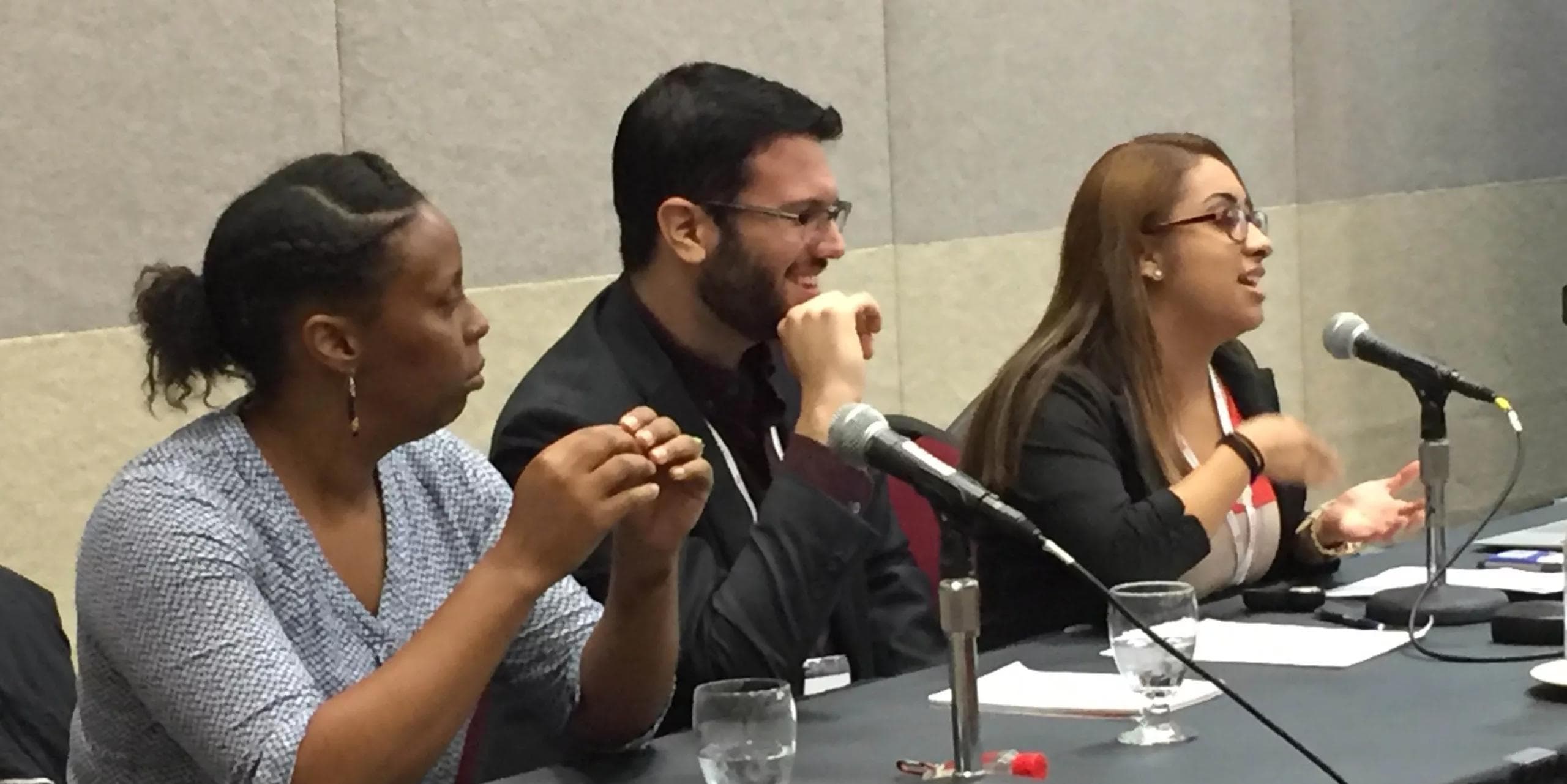Bioethics, industry, and diversity: Reflections on SACNAS 2017

I recently attended the National Diversity in STEM Conference, an annual event hosted by the Society for Advancement of Chicanos/Hispanics and Native Americans in Science (SACNAS). This amazing conference brings together thousands of Latinx and Native STEM students and professionals. SACNAS provides conference-goers both an opportunity to talk about the amazing STEM work done by talented people of color, as well as a chance to be recognized (and validated) as underrepresented people in STEM.
While there, I had the opportunity to speak on a panel about career pathways in bioethics. For a Latino bioethicist like me, speaking on that panel was a privilege. It gave me a great platform to speak about two issues near and dear to me—diversity in bioethics and bioethics in industry.
Bioethics is a field that takes the philosophical study of right and wrong (ethics) and applies it to biological sciences. Those sciences range from traditional biology and medicine to newer disciplines like genetics and genomics. Because of how the field helps us make just, principled decisions, bioethics is a crucial part of responsible scientific progress.
Many bioethicists tend to stay in just the academic or medical corners of the scientific world. They serve on the the institutional review boards (IRBs) that review research, and they consult with doctors as they make difficult decisions about their patients’ care. Even other fields that incorporate bioethics (like genetic counseling) have historically worked mostly in academic and medical spaces.
It’s crucial that bioethics is part of industry conversations
These places, however, aren’t the only ones where science is progressing. More and more, companies like Helix are pushing the boundaries of science forward. The revolution brought about by personal genetics and genomics began over a decade ago with efforts like National Geographic’s Genographic Project. And today, Helix’s first-of-its-kind marketplace for DNA-powered products is changing the way that people access and interact with their own genetics.
As industry continues to lead the way with science, it’s crucial that bioethics is part of industry conversations. To make sure that happens, it’s crucial that bioethicists find their way into industry as well.
I was fortunate enough to realize that very early on in my career in bioethics. While I studied bioethics and science policy at Duke University, I had great mentors who helped me see a future for myself as a bioethicist outside of academia. And with their guidance, I was able to find my way to Helix. Here, I put my expertise in ethics and policy to use every day as a Policy Analyst. I help make sure that the policies that affect how you use the Helix platform (both Helix’s and our Partners’) reflect key ethical values.
How I approach those values is, of course, a result of my training in bioethics. But putting bioethics into practice requires us to use the lenses of our own lived experiences. My lived experiences include those that come from my Puerto Rican (Boricua) heritage—and necessarily, those experiences will be different from those of someone from a different background. It’s crucial, then, that we work to include as many different lived experiences into bioethics as we can.
Bioethics first developed in the United States in the late ’60s and ’70s as a response to the historically paternalistic (or “doctor knows best”) attitudes of medicine and research. When that attitude was applied towards people from underprivileged minorities—like the poor, African-American sharecroppers of Tuskegee, Alabama—it led to a number of atrocities that bioethics sought to prevent from happening again.
To do that effectively, we need to hear from people whose friends, families, and communities are most likely to be affected. We need to hear more Diné (Navajo) bioethicists weighing in on genetic research, especially given how the genetic research policies of the Navajo Nation may influence the rest of the country. We need to hear more Boricua bioethicists to craft public health policies that reflect what our people need in the aftermath of the Zika outbreak and Hurricane María. We need more bioethicists from all underrepresented racial backgrounds to help ensure that research studies include more than just participants of European descent. And we can help make sure that we do so in ways that are ethically and culturally responsible.
A key theme that I took from SACNAS was that our stories, the stories of Latinxs and Natives in STEM, need to be told. Bioethics and policy can be powerful ways to tell those stories—and these fields benefit immeasurably from having our voices in the conversation.